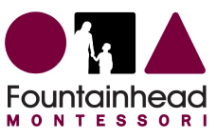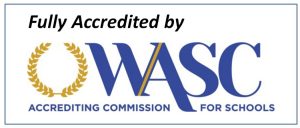When it comes to selecting the right preschool for their children, many parents are drawn to the Montessori method for its holistic approach to education, which nurtures not just the academic but also the personal development of the child. However, a common question arises: Are Montessori preschools expensive? Every family has to consider the costs of preschool and determine which option provides the best balance of value and quality.
Understanding Montessori Education
Before diving into costs, it's crucial to understand what sets Montessori education apart. Developed by Dr. Maria Montessori in the early 20th century, this educational approach emphasizes self-directed learning, mixed-age classrooms, and hands-on activities. Children are encouraged to explore their interests within a prepared environment, with guidance from specially trained teachers. This method fosters independence, critical thinking, and a lifelong love of learning.
Factors Influencing Montessori Preschool Costs
Several factors contribute to the cost of Montessori education:
- Specialized Training: Montessori teachers undergo extensive training to guide students in this unique learning environment. This specialized training can contribute to higher salaries and, in turn, higher tuition costs.
- Low Student-to-Teacher Ratios: Many Montessori schools maintain low student-to-teacher ratios to ensure personalized attention for each child. While beneficial for the child's development, this can increase operational costs.
- Quality Materials: Montessori classrooms are equipped with specific learning materials designed to support the method's hands-on learning approach. These materials, often made of natural and durable elements, can be costly.
- Facilities: Montessori schools typically offer environments that include outdoor spaces and specially designed classrooms that support self-directed learning. Maintaining such facilities can contribute to higher costs.
Comparing Costs with Traditional Preschools
While Montessori preschools can be more expensive than some traditional preschool options, the difference in cost is often reflective of the unique educational experience these schools offer. It's important for parents to consider not just the price but the value of the Montessori approach in fostering independence, problem-solving skills, and a positive attitude toward learning.
Navigating the Cost of Montessori Education
For families interested in Montessori education but concerned about costs, there are several strategies to consider:
- Scholarships and Financial Aid: Many Montessori schools offer financial aid, scholarships, or sliding scale tuition fees to help make education more accessible.
- Public Montessori Programs: Some public schools offer Montessori programs at no cost. These programs can be an excellent option for families seeking a Montessori education without the private school price tag.
- Prioritizing Expenses: For some families, investing in a child's early education is a priority that may require reallocating financial resources or sacrificing in other areas.
While some Montessori preschools can be more expensive than traditional preschool options, many parents find the investment worthwhile for the unique benefits this educational approach offers. By fostering a child's independence, curiosity, and love of learning, Montessori education lays a strong foundation for lifelong success. Parents considering this option should weigh the costs against the potential benefits for their child and explore financial assistance opportunities to make this transformative educational experience more accessible.












Let us know what you think about this post
Put your Comment Below: